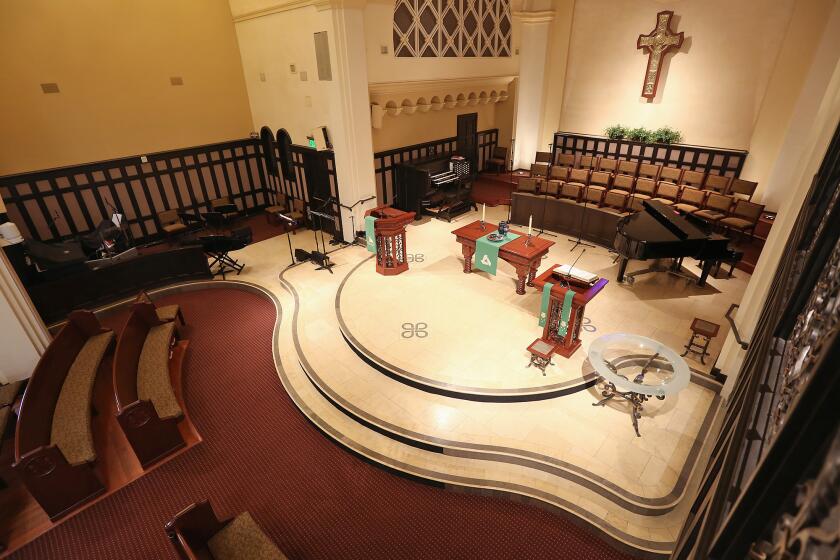‘W’ is a sympathetic look at Bush
Director Oliver Stone has been accused of unapologetically distorting the truth (“JFK”) and allowing his own political views to be evident in his film’s plots (“Platoon”). Given his history, a moviegoer could rightfully expect the ultra-liberal filmmaker to perform a “hatchet job” on a very unpopular serving president such as George W. Bush.
Surprisingly, his new biopic of the 43rd president of the United States, “W,” is fairly evenhanded and in many ways portrays the beleaguered leader in a sympathetic light.
Told in a series of flashbacks, Bush’s story begins in the 1960s when he was a fraternity pledge at Yale University. Accepted to the prestigious institution as a “legacy” rather than due to any scholastic merit, young Bush (Josh Brolin) quickly established himself as a lackadaisical student and hard-drinking partyer.
A son of privilege, George W. was born the grandson of a U.S. Senator, and the son of a war hero turned successful oilman. Of course W’s father, George Herbert Walker Bush, would later become a congressman, diplomat, C.I.A. Director, vice president, and president. Living in the shadow of his enormously successful father (James Cromwell) and domineering mother Barbara (Ellen Burstyn), young George drifted from one failed venture to the next; using his father’s influence to open doors and his assistance to bail him out when he inevitably botched the opportunity.
Bush eventually gave up drinking and became very religious describing himself as a born again Christian. He worked on both of his father’s presidential bids, the successful run in 1988 and the failed attempt for reelection in 1992. Returning to Texas, Bush decided to run for governor despite his failed congressional bid some years before. Receiving only lukewarm support from his father who had already pledged to assist the seemingly favored son Jeb for his own gubernatorial bid in Florida, Bush nonetheless beat incumbent governor Ann Richards in a ruthless campaign engineered by Karl Rove (Toby Jones).
Many well known Bush faux pas are illustrated in his rise to the presidency. However, it isn’t until he becomes president that the pathos of his story becomes evident. Surrounded by people such as Dick Cheney (Richard Dreyfuss), Donald Rumsfeld (Scott Glenn), General Colin Powell (Jeffrey Wright) and others who had served in his father’s administration, Bush is led into a series of questionable decisions after the tragedy of 9/11. The president becomes a man besieged and the formerly happy-go-lucky everyman is clearly uncomfortable as an object of contempt and ridicule.
George W. Bush’s story as presented in the film is the ultimate illustration of the Peter Principle. Bush’s ascendancy to his own level of incompetence is all the more remarkable due to him becoming the leader of the free world. Bush seems lost as the ideological underpinnings of the Iraq war come unglued and other priorities are pursued without his direct knowledge.
Acting in a film such as “W” has many potential pitfalls as all the actors are portraying living persons. Most of the performances are first-rate or at least interesting with the exception of Thandie Newton’s portrayal of Condoleezza Rice. Newton’s performance is cartoonish and reminiscent of a “Saturday Night Live” sketch rather than a serious attempt to portray the current Secretary of State.
The standout performance in “W” is Josh Brolin as the title character. Incorporating Bush’s voice, mannerisms, and facial expressions, Brolin is still able to create a flesh and blood character that at time evokes empathy. Brolin is almost certain to receive numerous nominations this awards season.
Rumor has it that “W” was rushed to theaters before the upcoming presidential election in order to sway voters. Given its relatively gentle depiction of George W. Bush, it is doubtful many voters will factor this film into the decision-making process.
All the latest on Orange County from Orange County.
Get our free TimesOC newsletter.
You may occasionally receive promotional content from the Daily Pilot.



